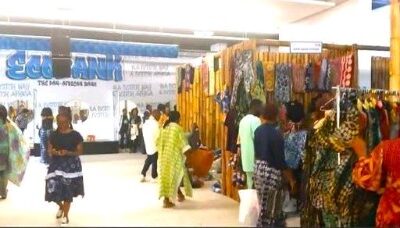BUSINESS
Ecobank Launches Ellevate, Set To Empower Over 40 Million Women In Business

- /home/porsch10/public_html/wp-content/plugins/mvp-social-buttons/mvp-social-buttons.php on line 27
https://porscheclassy.com/wp-content/uploads/2021/07/Ecobank-Ellevate-e1626104571322.jpg&description=Ecobank Launches Ellevate, Set To Empower Over 40 Million Women In Business', 'pinterestShare', 'width=750,height=350'); return false;" title="Pin This Post">
- Share
- Tweet /home/porsch10/public_html/wp-content/plugins/mvp-social-buttons/mvp-social-buttons.php on line 69
https://porscheclassy.com/wp-content/uploads/2021/07/Ecobank-Ellevate-e1626104571322.jpg&description=Ecobank Launches Ellevate, Set To Empower Over 40 Million Women In Business', 'pinterestShare', 'width=750,height=350'); return false;" title="Pin This Post">
-

 BIG STORY3 days ago
BIG STORY3 days agoFrom Harvard With Love: Why Ijebuland Is Blessed With A Strong Choice
-

 BIG STORY4 days ago
BIG STORY4 days agoJUST IN: Five Feared Dead As Bandits Attack National Park In Oyo
-

 BIG STORY4 days ago
BIG STORY4 days agoBREAKING: Peter Obi’s Ex-Running Mate, Datti Baba-Ahmed Declares Presidential Ambition
-

 BIG STORY3 days ago
BIG STORY3 days agoBREAKING: Chimamanda Adichie Loses 21-Month-Old Son
-

 BIG STORY2 days ago
BIG STORY2 days agoPeter Obi Is A ‘Character-In-Chief’, I Know The Junction Where Madman Who Advised Him Stayed In Anambra —- Bwala
-

 BIG STORY4 days ago
BIG STORY4 days agoTax Reforms Will Support Sustainable Growth, Not Targeted At Opposition Figures —– NRS Chairman Zacch Adedeji
-

 BIG STORY4 days ago
BIG STORY4 days agoBREAKING: Malami, Son, Wife Granted N500m Bail Each
-

 BIG STORY4 days ago
BIG STORY4 days agoPolice Arrest 20-Year-Old Emmanuel Akpama In Lagos Over ‘N1bn International Romance Scam’




















